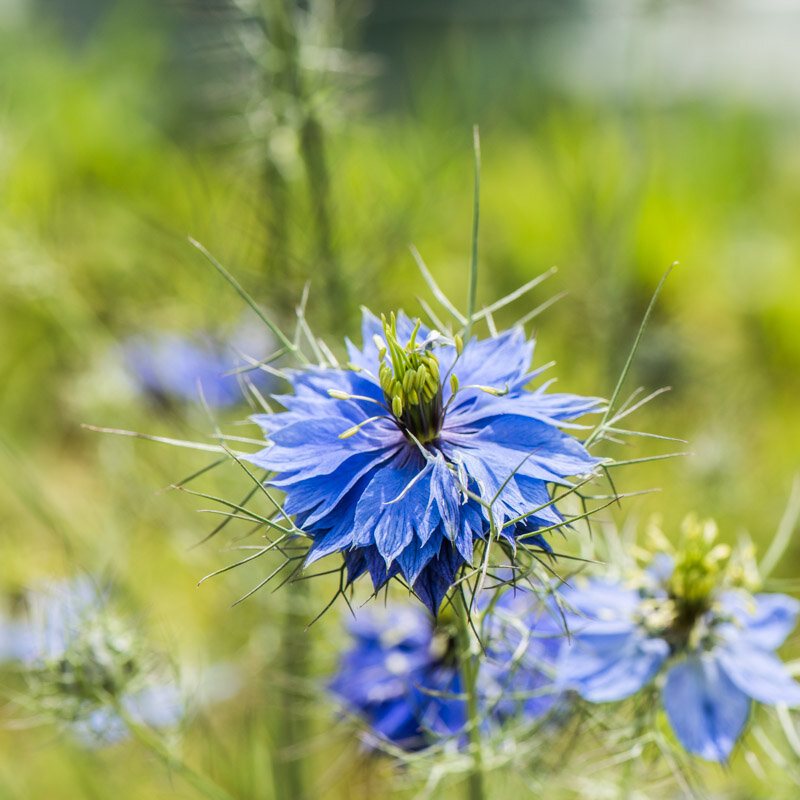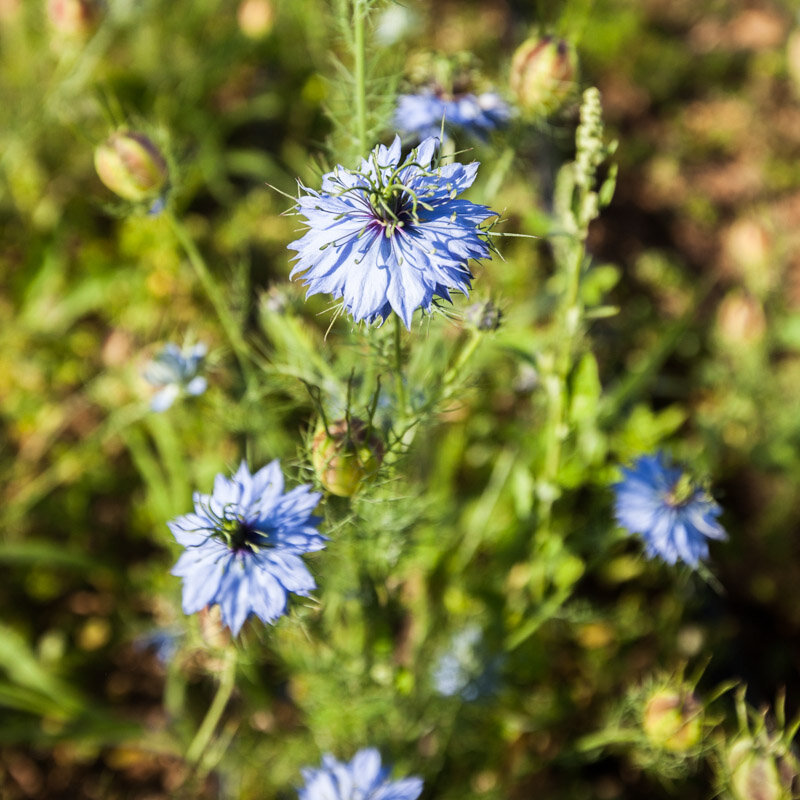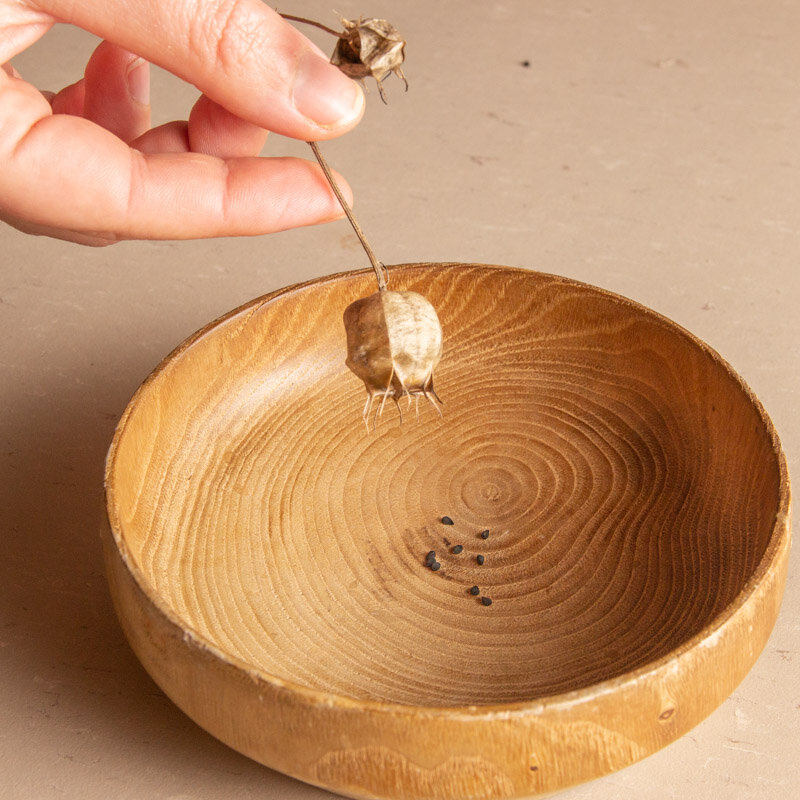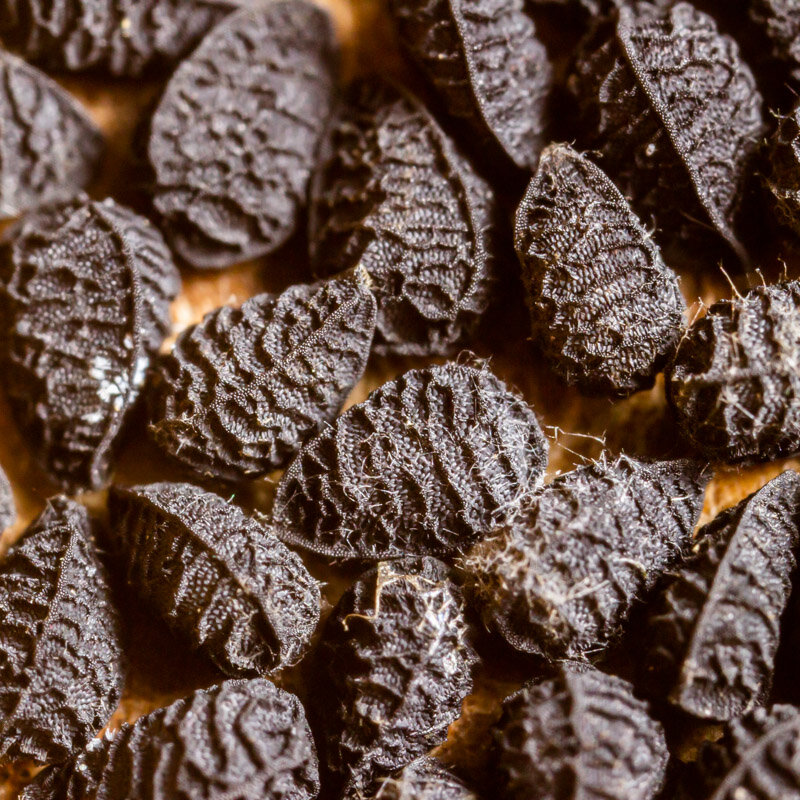Blue - Nigella
This bushy variety offers an abundance of elegant blue flowers above finely cut, extremely decorative green foliage. The red-streaked brown fruits contain edible black seeds.
These products may also be of interest to you
in the ground, on the fly, online
Sow lightly, directly in place, in well-warmed soil. Press lightly and water in light showers. When plants have 3 to 4 leaves, thin out if necessary, leaving only one plant at 30 cm in all directions. To extend the flowering period, stagger sowing.
In mild climates, autumn sowing is possible for earlier flowering.
March, April, May, June
June, July, August, September
in the ground, in pot
semi-shade, sunny
medium
all floor types
drained, reheated, rich
Nigella damascena
mid-season
200 seeds
Mixed Colours
edible
From 25 to 45 cm
cut
Eurasia
The flowers of Nigella damascena are just as edible as its seeds - which taste like nutmeg. In his book "Edible Plants of the World", published in the 19th century, Lewis Sturtevant mentions the cultivation of Nigella damascena in Turkey for its seeds, which, like those of Nigella sativa, are used as condiments. Both species have traditionally been considered extremely medicinal. In fact, a 2015 study highlighted that Nigella damascena is not a diuretic like Nigella sativa, but has more powerful antioxidant properties than Nigella sativa.














